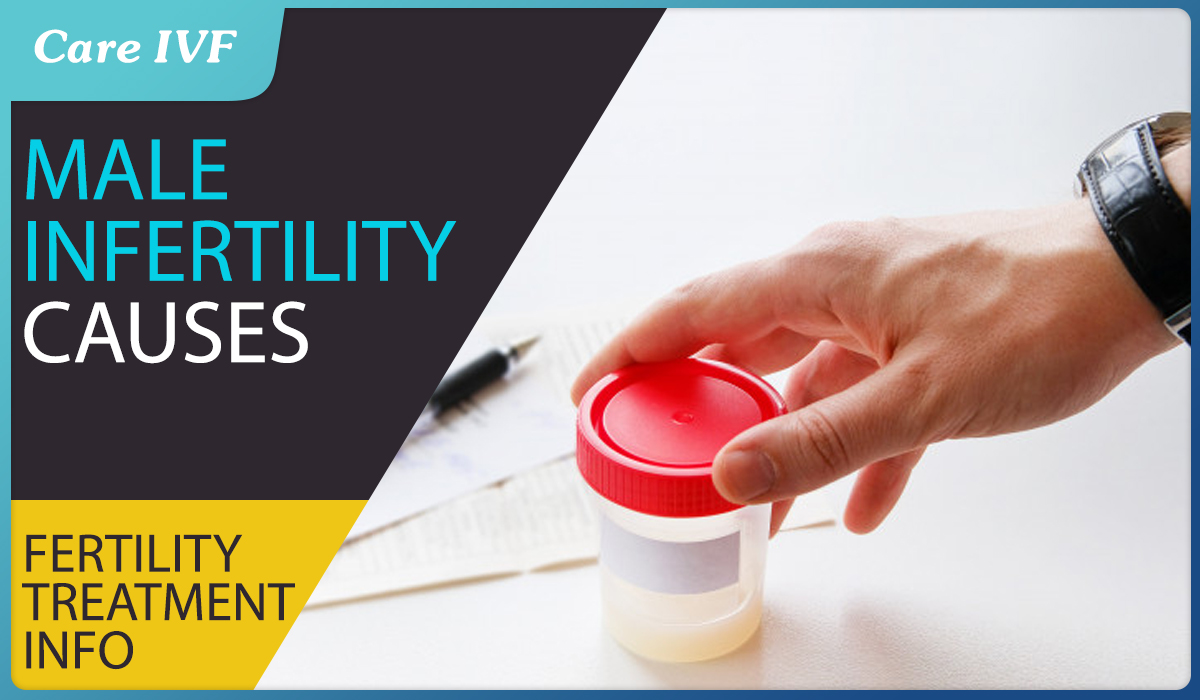

What are the Factors that contribute to Male Infertility?
Causes of male subfertility
15-20 percent of couples will fail to conceive after 1 year of unprotected intercourse. A malefactor alone is thought to contribute in up to 30% of these cases. Male infertility can be due to a variety of reasons which lead to decrease count or motility of sperms or abnormal physical appearance of sperms. These can be due to defects at multiple levels starting from brain signaling pathways (pre testicular)to testes to post testicular ducts, which transport sperms to male urethra.
It is estimated that in about 50% of men with poor semen quality, no cause for this will be identified.
PRE TESTICILAR CAUSES
Conditions that act at the pretesticular level that is at the high level of brain signaling pathways tend to be hormonal in nature. They account for <1% of male factor fertility problems. It results from decreased production of FSH and LH hormones secreted from a small gland called the pituitary gland. The absence of these hormones lead to the failure of sperm formation and testosterone secretion by the testes.
This may happen after surgery for pituitary tumors, head trauma, iron overload, other congenital genetic syndromes of reduced gonadotrophin secretion (Prader Willi syndrome), increased prolactin levels, excess steroid intake, thyroid dysfunction
TESTICULAR CAUSES
Causes at the testicular level are largely irreversible but can be treated with assisted reproductive technology (ART), if sperm is retrievable surgically or through a needle procedure called TESA/TESE. The number and quality of sperm that can be recovered, either from the ejaculate or surgically, determine the available options for assisted conception. It results from testicular failure and leads to decreased or nil sperms coupled with elevated pituitary hormone levels.
This can happen due to the following reasons:
- Failure of testicular descent to scrotum,
- Varicocele
- Genetic disorders such as Y chromosome deletions, Klinefelters syndrome (47, xxy)
- Systemic diseases like kidney or liver failure
- Radiotherapy or chemotherapy
Varicoceles, a collection of dilated refluxing veins in the scrotum, are found in 11.7% of men with normal semen and 25.4% of men with abnormal semen. The exact mechanism by which a varicocele can affect fertility is not well understood but theories include increased scrotal heating and altered testicular steroid synthesis.
However, in the majority of cases (66%) the cause is unknown.
POST TESTICULAR CAUSES
Post-testicular cause: it maybe due to blockage of passages carrying sperms from testes towards the exterior. These can be treated with microsurgery or through IVF. Obstruction in passages transporting sperms from testes to ejaculate accounts for up to 41% of cases of azoospermia.
Causes include:
- surgical trauma and vasectomy,
- infection (chlamydia, gonorrhea, tuberculosis),
Absence of specialized ducts called vas deferens which connect the testes to the male urethra especially in cystic fibrosis
Diseases like- Diabetes mellitus, or, spinal cord injuries may also be deterrent in normal conjugal life
LIFESTYLE FACTORS
Male age
paternal age of >35 years halves the chance of achieving pregnancy compared with a paternal age of <25 years. The effect of age on male fertility is more noticeable after the age of 50with studies showing a concomitant increase in adverse outcomes in the offspring.
Environmental, occupational and lifestyle factors
There is increasing evidence from epidemiological studies that occupational exposures to certain chemicals can affect semen quality. These include heat, X-rays, heavy metals (lead, mercury), glycol ethers (highly volatile compounds used as solvents)and pesticides; The exact mechanism by which these occupational substances affect male fertility remains unclear.
There is evidence that a sedentary lifestyle, most likely through elevated scrotal temperature, can affect sperm production.
Obesity
Obesity causes altered semen parameters through an imbalance of reproductive hormone levels, as obese men have reduced hormone-binding proteins leading to elevated female hormone or estrogen levels.
Steroids
Steroids may induce having nil sperms by interfering with the brain signaling pathways Azoospermia caused by steroid intake may be reversed by conservative management when the drugs are discontinued, especially in non-heavy users or by the administration of human chorionic gonadotrophin and human menopausal gonadotrophin. Sperm quality tends to recover spontaneously within 4–12 months after discontinuation.
Heavy alcohol consumption:
Heavy alcohol consumption but not moderate consumption, may affect sexual and reproductive performance in a reversible fashion.
Nicotine and Drugs
Tobacco smoking and cannabis consumption have been shown to reduce semen quality. Although smokers, in general, may not experience reduced fertility, men with suboptimal semen quality may benefit from quitting smoking and this should be strongly encouraged.
Article Tags
About the author

Leave a Comment